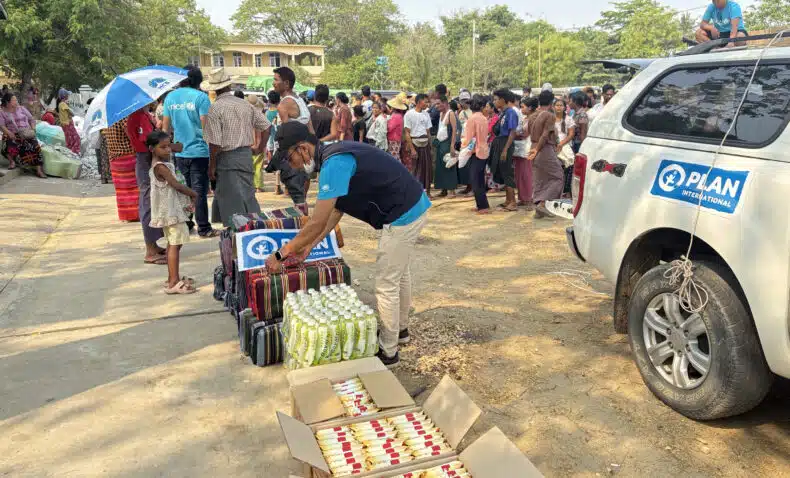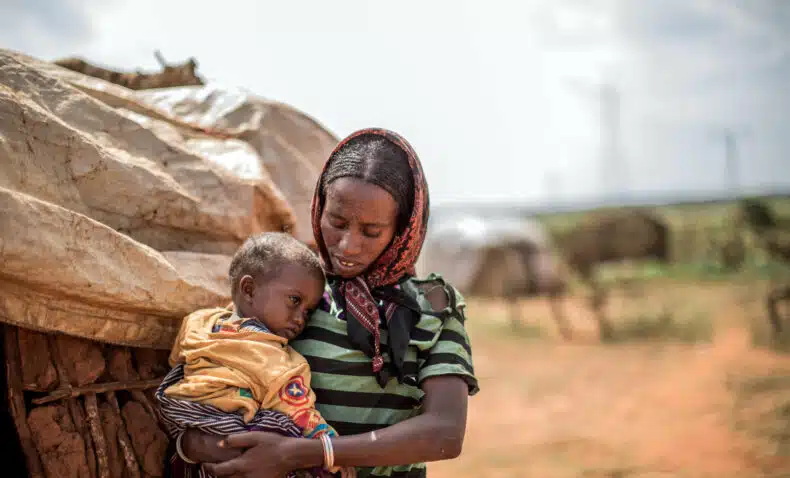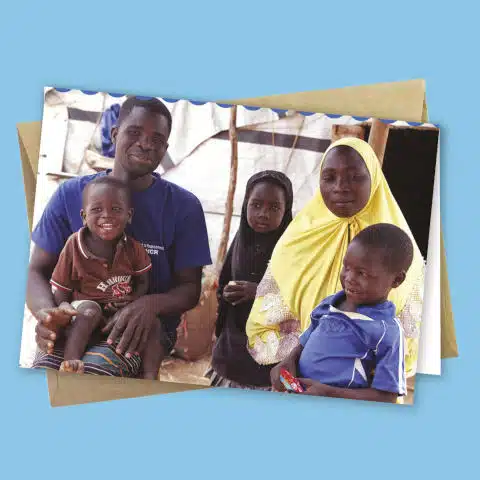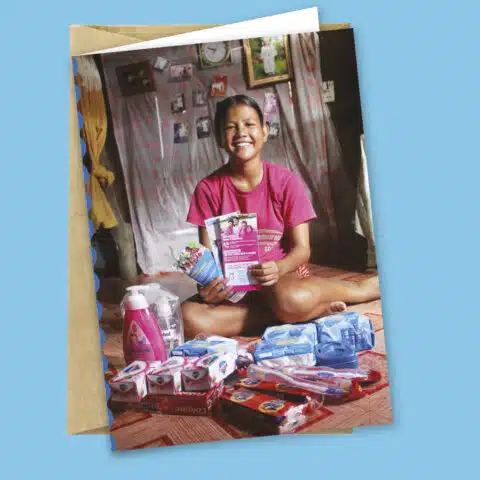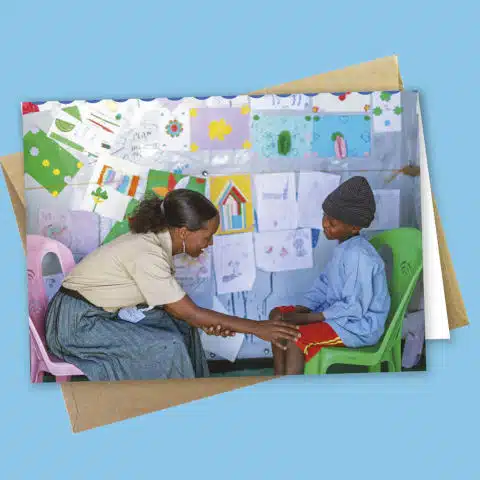Our approach to emergencies
In our emergency responses, we coordinate and partner with community members, other charities, UN agencies and local governments, to make sure we create the best outcomes for those affected. We share our resources, technical expertise, analysis and information across partnerships in real time, improving how we provide aid.
We also work before disasters strike to increase government and community knowledge, and their capacity to prepare for, and respond to future disasters.
Our focus is to ensure children and young people grow up in resilient communities and realise their rights to live with dignity and protection, before, during, and after disasters and conflicts.
Responding to sudden-onset emergencies
In the case of earthquakes, floods, tsunamis and storms, sadly most lives are lost in the first days after a disaster. The quicker we respond, the more lives we can save.
We aim to meet the needs of children and their families as soon as possible, usually within 24 hours. We provide nutritious food, clean water, safe places for children to play and relax, and kits that include the essentials like nappies, sanitary pads and soap.
We’re also working in countries prone to disasters throughout Asia and the Pacific, by helping children develop evacuation plans and teaching them about the disasters their villages might experience. This is called ‘disaster risk reduction’, and it’s a proven life-saver.
We can’t prevent crises from occurring, but the faster we respond, the more lives we can save. By becoming a Plan Rapid Responder, your regular donation ensures that immediate and lifesaving funds are always available and ready to be deployed when disaster strikes. Join today.
Slow-onset emergencies
While sudden events will continue to need a quick response, more and more humanitarian crises are emerging over time as a result of a combination of circumstances.
The impacts of drought for example, can worsen and be worsened by existing challenges to food security – including poverty, displacement (people forced to flee their homes), conflict and disruptions in global supply chains and markets.
In these slow-onset emergencies our work includes supporting children’s nutritional and emotional needs, ensuring families have food to eat and giving children – particularly girls – the chance to continue their education.
Our research
Our program work is informed by evidence, and we’re always learning. Read our latest humanitarian research reports.
Join the call for an immediate ceasefire in Gaza
Our current emergency responses
We’re responding to disasters and crises around the world, focusing on the needs of children and girls. Our current responses include:
- Myanmar Earthquake: we’re helping our neighbours in Myanmar survive a massive earthquake.
- Middle East Crisis: we’re helping children and families fleeing violence in Lebanon and Gaza and calling for an immediate ceasefire.
- Sudan Crisis: we’re supporting displaced families and calling for new and additional funding.
Working with the Emergency Action Alliance
Plan International Australia is proud to be a founding member of Emergency Action Alliance, a collective of Australian based aid organisations that uses its reach and resources to save lives around the world. Together, we raise more money, for greater impact.
By combining our capacity with other major humanitarian organisations we can turn the care and passion of our supporters into a targeted response to international emergencies. This allows us to help more people in their greatest moment of need.
Photo: Women and children on way to catch bus after crossing the border into Romania. © Plan International / George Calin
How girls are affected in emergencies
Climate change, mass displacement, conflict and emergencies pose a huge risk to everyone. But with both their age and gender increasing their risk of harm, girls stand to lose more than most.
For adolescent girls living in some of the world’s most volatile locations, the inequalities they already face are made much worse. Their education is disrupted by displacement, and the likelihood of gender-based violence, abuse, early marriage and early pregnancy increases.
No matter their situation, every girl has the right to go to school, live free from violence and inequality, and to follow her dreams. That’s why, from South Sudan to Lebanon, we’re working with girls and young women to help them continue their education, know their rights, and stay safe. Girls are vibrant, powerful and passionate about improving their situations – for themselves, their families and their communities.
As we’ve seen around the world, young people are some of the loudest campaigners when it comes to ending gender-based violence, advocating for education and climate change activism.
By empowering young people to lead the charge on peace-building, mitigating and adapting to climate change and other crises, we see a generation ready to protect their homes, their communities and the planet.
Photo: Hot meals being prepared for people of Gaza by Plan partner Taawon. © Taawon Welfare Association
Responding in Ukraine
Between February and October 2022, more than 7.7 million people (86% women and girls) fled the war in Ukraine, seeking refuge in neighbouring countries (Source: UNHCR).
13-year-old Arina and her mother Iryna (pcitured) have spent the last few months moving between various countries and shelters, finally settling in Bucharest, Romania.
Through our local partner ADRA, Arina and her mother have been part of our cash voucher program, which allows people to buy food and any other items they might need.
We spent the money buying fruit and vegetables for the children. We also bought some medicine, hygiene products, underwear and other private items that women need. The vouchers made us feel more secure as we had our own money…could make our own decisionsPlan International and our local partners have been supporting refugees in Poland, Romania and Moldova with relief assistance, child protection, mental health and psychosocial support, cash and voucher assistance, education and advocacy programs.
Our Ukraine response is delivered in partnership with the Australian Government through the Australian Humanitarian Partnership (AHP) and with support from our partners Plan Netherlands, IMC and the Emergency Action Alliance.
Photo: Iryna and her 13-year-old daughter Arina. © Plan International / George Calin


